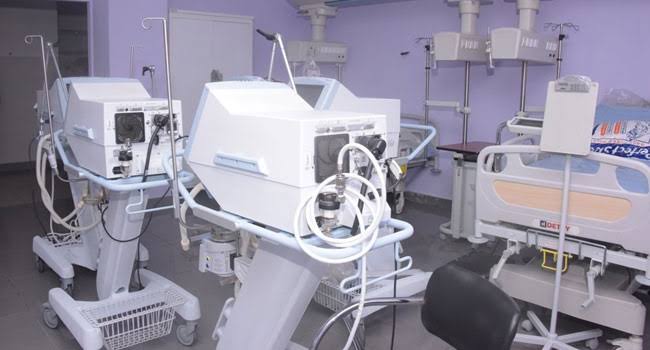BY ABIEMWENSE MORU
Nigeria is standing at a transformational crossroads in its healthcare journey.
While challenges exist, so do opportunities, big, bold opportunities to reimagine the nation’s hospitals, elevate medical services and ensure that quality healthcare is not only accessible at home but also trusted and globally respected.
What once felt like an impossible dream, ending medical tourism, is now a national conversation backed by reforms, innovation and dedicated professionals determined to turn things around.
With collaborative action and strategic investment, Nigeria is poised to fix its hospitals and emerge as a medical powerhouse in Africa.
In recent years, government health budgets have expanded, setting the foundation for progress.
Experts are now aligning around how to make those budgets impactful and visible in hospitals and clinics nationwide.
At the 2025 Nigeria Surgical Congress held in Lagos, Prof. Bala Shehu, the Vice Chancellor of Federal University of Medical and Health Sciences, Funtua, delivered a visionary keynote address.
He underscored the need to channel resources into modernising teaching hospitals, equipping them with up-to-date tools, improving infrastructure and creating work environments that retain the country’s brightest medical minds.
He said “healthcare financing is improving and we’re in a strong position to ensure every Nigerian can access high-quality treatment without financial hardship.”
His message was clear when he said “with the right priorities, the system can evolve into a beacon of excellence.
“Nigeria’s medical workforce remains one of its greatest strengths.
However, retaining these professionals is key. “Many young doctors have sought opportunities abroad due to limited tools and difficult working conditions.”
Recognising this, national discussions now emphasise better pay, career development and safer, well-equipped hospitals.
As Shehu aptly put it, “to keep our best brains, we must treat them like they matter.”
Encouragingly, both federal and state institutions are now proposing structured retention policies, improved compensation and expanded training programmes, essential steps to keeping Nigerian talent in Nigeria.
Some public hospitals are already demonstrating what’s possible with targeted investment.
The University of Abuja Teaching Hospital (UATH) recently expanded its bed space from 350 to more than 500, a major milestone in improving patient care.
According to Prof. Bissala Ekele, the UATH Chief Medical Director, the expansion highlights the hospital’s ambition to meet rising demand and deliver better outcomes.
UATH’s next steps, he added, include acquiring advanced diagnostic tools like MRI machines and strengthening electricity supply, investments that are already in motion, thanks to increased attention from law- makers and healthcare committees.
Nigeria’s lawmakers are taking more active roles in healthcare oversight.
The House of Representatives Committee on Health Institutions, chaired by Rep. Amos Magaji, pledged stronger action to reduce outbound medical travel.
Many of their recent motions aim to improve access to specialist services in underserved regions, upgrade existing facilities and increase transparency in healthcare funding.
Rep. Nnamdi Ezechi, for instance, urged the Federal Government to strengthen healthcare services in the Federal Capital Territory (FCT), high- lighting the need to modernise facilities to match growing population demands.
This kind of legislative focus is crucial to achieving sustained improvements across the board.
The private healthcare sector is also playing a crucial role in bridging gaps, currently attending to an estimated 70–80 per cent of Nigeria’s patient population.
According to Dr Kay Adesola, the President of the Association of Nigeria Private Medical Practitioners (ANPMP), private hospitals have become frontline responders for emergency cases, childbirth com- plications and chronic disease care.
To strengthen this role, Adesola called for supportive government policies, tax relief on medical equipment and better integration of the National Health Insurance Authority (NHIA) into private practice.















